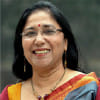Safe at home or scared at home?

If one is asked, where do you feel most safe and secure? The answer will invariably be "my home".
Unfortunately, that is not true for millions of women around the globe who suffer domestic violence at the hands of intimate partners every day of their lives, living in constant fear of being beaten, sexually or verbally abused. As per a WHO study, 35 percent women worldwide suffer physical or sexual intimate partner violence and as many as 38 percent of all murders of women are committed by their partners. One in every four women have suffered domestic abuse at least once in their lifetime. What more evidence is required to prove WOMEN ARE NOT SAFE IN THEIR HOMES?
The scenario in Bangladesh is no different. The BBS reported in a 2011 study that 87 percent women have suffered some form of domestic violence out of which 65 percent faced direct physical abuse. The number came down to 80 percent in the 2015 survey with physical violence at 49 percent, but the report nonetheless states that on average almost two thirds (72.6 percent) of every-married woman in Bangladesh have experienced some form of partner violence in their lifetime.
By all accounts this is a damning indictment of the position of women in their families and the way they are treated. With already such high prevalence of domestic violence, the present pandemic and ensuing lockdown only exacerbated an already grim situation. As per a Manusher Jonno Foundation (MJF) survey, from April to September, 37,512 women and children in selected locations suffered domestic violence ranging from physical, sexual and mental abuse. Early marriage increased as parents were eager to get rid of their "burden" when income came down and one can only imagine the sexual violence endured by these young girls during the lockdown. Across Brac's 408 legal aid clinics, there was a 69 percent increase in violence against women and girls in 2020 compared to the year 2019.
Of all forms of violence, domestic violence is the most pervasive, carried out over a long period of time with little hope of getting justice. The much acclaimed Domestic Violence Prevention Act 2010 has been almost impossible to implement. Ten years after its enactment, only a few cases have been lodged (234 by ASK and 147 by Blast). The economic vulnerability of women prevents them from filing cases against their husbands, as one woman said, "Tare niya gele amra khamu ki?" ("what will we live by if he is taken away?"), proving that mere enactment of laws without appropriate structures of support does not ensure implementation.
Domestic violence has its roots in socio-cultural norms and practices. Condoned by religion and tradition it is another manifestation of patriarchy that thrives on unequal power relations within the family and stems from the pervasive belief that men are superior to women and therefore have the right to control every aspect of their lives. Discrimination starts from birth with male preference and continues throughout a woman's life cycle. Even with gender parity in education, a girl is most likely to drop out from school during any crisis, financial, natural or health related. More than 50 percent of girls are married off before they reach the legal age of 18 and pushed into a physical and social relationship that they are not prepared for. Marital rape is not recognised in laws enacted to protect women from violence—I would like remind readers of the recent death of a 14-year-old girl from Tangail due to genital bleeding a month after her marriage to a 34-year-old man.
The social acceptance of domestic violence even by victims themselves is what makes it so dangerous and insidious. Another study revealed 34 percent women aged 14-59 believe that a husband hitting his wife is justified (UN & BBS ). A rural woman went as far as to say, "If my husband beats me and I bleed, that blood will go to heaven". It is precisely this kind of brainwashing through sermons and misuse of religion over the years that has reinforced a husband's right to use physical violence and has instilled in the minds of women that it is okay to be beaten by their husbands.
There is no doubt that women in Bangladesh have made great progress. However, women are not one homogenous group and while middle class educated women have negotiated for themselves a relatively better position, the majority of women continue to suffer discrimination and unequal treatment by family members and society at large. While we have attained gender parity in education, there are few options for employment for young girls who come out of schools as a mother once asked me: "I have taken great pains to educate my daughter till 8th grade, now you tell me what should I do with her?" The situation of women who stay home as homemakers is even worse. There is no recognition of their contribution as even their productive work is considered "household work"—of little value. During lockdown, a jobless man exclaimed, "I have fed you for so long don't bother me anymore," which means the woman supposedly did nothing but consume while he did all the work. Women get no respect for the countless hours they spend taking care of every need of the family and beyond, plus little recognition for the fact that the entire care economy depends on them.
The BBS report of 2015, that almost two thirds ( 72.6 percent) of ever- married women in Bangladesh have experienced some form of partner violence in their lifetime, is not only a shocking revelation for society but also an indictment of what we as women rights activists have been doing for several decades. Perhaps it is time to reflect on our strategies and interventions. Have we been able to convey the right message to men, boys or families? After all, these men who abuse their wives are members of the society that we live in. What makes them behave in such abusive ways? Is it something in their socialisation or it is our education system that does not teach respect for all human beings? The traditional image of women in their pre-determined roles is ingrained in the psyche of men, on the other hand, society's expectation of men is to be tough, in control and if need be, brutal to prove their manhood. This lethal combination can only be addressed by challenging patriarchy which lies at the root of women's unequal position.
Finally, our experience tells us that addressing domestic violence is the most difficult. The challenges are at various levels, cultural, traditional, religious and economical. However, we have seen changes over the years. What was considered a family concern has been brought out in the public domain. Women are willing to complain, talk about it and seek help. Many more men and boys are standing in solidarity with us and raising their voices. We have to amplify these voices, launch massive campaigns to change societies perception about women. Most importantly, raise our girls to be confident to resist violence and teach boys that abusive behaviour and actions are unacceptable, is against the law and will have consequences. Only then, someday perhaps, we will be able to say women are not living in constant fear and are safe in their homes.
Shaheen Anam is Executive Director, Manusher Jonno Foundation.

 For all latest news, follow The Daily Star's Google News channel.
For all latest news, follow The Daily Star's Google News channel. 



Comments